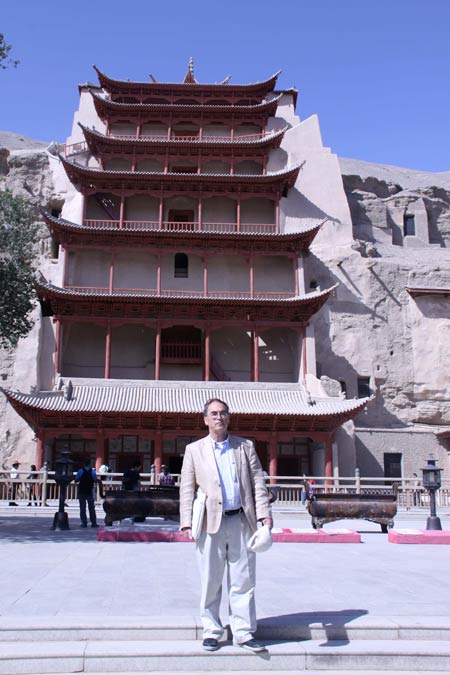A passion for Chinese culture
 |
|
Idema in front of the Mogao Grottoes in Dunhuang. |
While he recalls the backwardness of China in the late 1970s, Idema says he is impressed with the rapid development of the country over the last few decades. He has visited the county several times to study and teach.
He vividly remembers the "China mania" in the West when the county opened up in the 1980s, and the flood of new materials about ancient Chinese culture that appeared in the West.
While many other experts on China focused on the county's economic transformation, Idema continued to study traditional Chinese literature. "There were scholars studying law, religion and society, but not traditional Chinese literature, which was my personal interest," Idema explains.
Finding reference books for his research, especially regional publications, used to be a huge challenge, and Idema used to spend a lot of time collecting books and other materials during visits to China.
"With the Internet now, it is much more convenient," says Idema.
Idema usually chooses less-known subjects for his research and tries to get firsthand materials. In recent years, he has devoted himself to translating Chinese folk tales and writing about Chinese folk society and folk culture.
"Traditional Chinese culture is a passion. I have been studying it for 50 years and will continue to do so," says the retired professor.


















